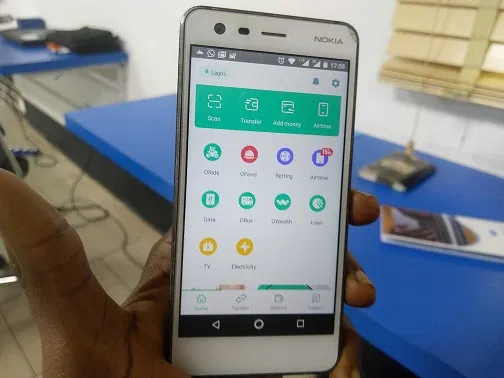Other Pages
- Opinion Poll
- About Us
- Send Your Story
- Contact Us
- Newsletter
- Privacy Policy
- Terms and Conditions

OPay has announced it will shut down its many subsidiaries as they continue to struggle due to government policies and harsh business conditions in Nigeria and Lagos State. The Chinese tech company will shut down ORide, OCar and its logistics arm; OExpress, and focus resources on its payment platforms - but OPay is taking the decision at a wrong time.
OPay highlighted the struggles of these subsidiaries in a statement seen by AllNews. According to the tech firm, the challenges being faced by ORide, OCar and OExpress do not affect the parent company, OPay. It was learnt that government ban, lockdown and COVID-19 pandemic consequences have made the business environment in Nigeria hostile to its subsidiaries.
"We can confirm that some of our business units including the ride-hailing services, ORide, OCar as well as our logistics service OExpress will be put on pause. This is largely due to the harsh business conditions which have affected many Nigerian companies, including ours, during this COVID-19 pandemic, the lockdown, and government ban." The statement reads in part.
The company said it had taken precaution as it had projected the negative impact of the challenges "several months ago". AllNews gathered that before OPay came to this conclusion, restructuring had been ongoing within the company. OPay had been shifting its business focus from rides, which had previously been the company's revenue driver.
"It is worthy to not that this final restructuring has minimal impact on OPay as a whole business," OPay said. The company didn't reveal the fate of other subsidiaries like OFood, OList, OBus, and other units, but it stated that investment will now only go into OPay's offline and online payment solutions - mobile money agency and digital payment - to support the e-commerce system.
It was revealed that OPay, as a business, has been recording impressive growth despite the same harsh business conditions that have forced the company to shut down its subsidiaries temporarily. The payment solutions recorded 44% growth within the first quarter of 2020 and April this year - hence, OPay has increased investment in its payment solutions to take advantage of the migration of business transactions from physical to online.
The decision to shut down their subsidiaries further compound the woes of its workers who will be joining the unemployed market at a period companies are not willing to hire. Earlier this year, ORide and its market rivals, Gokada and Max.ng had to divert their ride-hailing operation into a last-mile delivery service to save jobs and protect their investment after the Lagos State Government banned motorcycle operations from revenue-driven locations.
The transition by ORide birthed OExpress, its logistics unit, but it seems ORide can no longer survive the business environment in Nigeria. Recall that this year, Nigeria decided to ensure compliance with licence to operate as a carrier on Nigerian roads. The licence cost N2 million to obtain and N360,000 annually to renew, according to TechPoint - this has thrown the future of logistics market into chaos.
Now, all the workers in ORide and OExpress, as well as those individuals depending on OCar to earn daily income, will have nothing to fall back on at a period prices of household items are increasing and fees of basic amenities like electricity is scehduled to increase as well in a country that lacks stable power supply. Meanwhile, the government recently also increased fuel price from N121.50 kobo to over N140 per litre.
0 Comment(s)